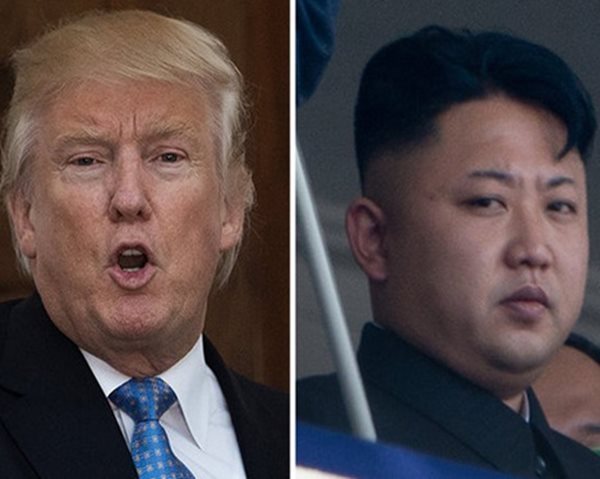President Donald Trump has given military orders for U.S. forces to shoot down and destroy any missile launched from North Korea and moving toward the continental United States, Hawaii, and Guam.
Sources close to the president's national security team tell Newsmax the order was given to Pentagon brass in the wake of last month's threat by North Korea to fire a ballistic missile aimed at Guam, a U.S. territory.
"The threat provoked the president," one source familiar with the decision told Newsmax.
Last Sunday, North Korea detonated a thermonuclear weapon. The communist regime claims they can fit the new device on advanced intercontinental ballistic missiles, known as ICBMs.
This week, South Korean intelligence sources said the North was moving an ICBM in an apparent preparation for another test launch over the northern Pacific and possibly Japan.
The president also is said to be considering a new "shoot down" order for any North Korean missile launched and moving toward Japan or South Korea, another national security source told Newsmax.
"This is a clear exercise of self-defense, and there's no question we should do it," former U.S. ambassador to the United Nations John Bolton told Newsmax.
Bolton said U.S. allies South Korea and Japan "are in jeopardy" and said the United States must take steps to protect them under treaty obligations.
The presidential order came after a flurry of recent provocations from Pyongyang.
In August, President Trump ominously warned the North Koreans that continued threats "will be met with fire and fury like the world has never seen."
Soon after, North Korea answered Trump's warning by threatening a ballistic missile strike off the territory of Guam.
The president quickly responded, saying any attack against the U.S. would be met with a fierce response.
"Things will happen to them like they never thought possible," the president said, adding U.S. forces were "locked and loaded."
The situation appeared to be de-escalating when North Korean strongman Kim Jong Un announced he had met with his military commanders and they would not fire the missile at Guam.
In a threatening move Aug. 29, North Korea launched from their capital Pyongyang what they said was an "ultramodern rocket system" — an intermediate range missile. The missile flew over Japanese territory and landed in the Pacific.
"There is general consensus in the White House and the Pentagon that North Korea is quite close to the 'red zone' and that the U.S. must act soon or lose the upper hand," one official told Newsmax.
Bolton, who has advised the president informally on security matters, said the U.S. is being "driven in the direction of a preemptive strike because North Korea won't back down."
"We are close to the finish line," Bolton said, referring to Pyongyang's recent missile and nuclear developments. "It highlights how little time we have here."
Just days after North Korea's nuclear test detonation, Han Tae Song, the North Korean ambassador to the United Nations in Geneva, told a disarmament conference the U.S. could expect more "more gift packages."
If the U.S. military does act on President Trump's orders to shoot down a missile, this would be achieved through different U.S. anti-ballistic programs under the aegis of the Missile Defense Agency.
Among these programs are the 26-year-old Terminal High Altitude Area Defense system, (THAAD), whose "hit to kill" interceptors are designed to shoot down an incoming missile through kinetic energy that explodes the missile on impact.
"It's called stopping a bullet with a bullet," one veteran intelligence expert told Newsmax.
The technology appears to be working.
In late August, a day after the North Korea missile flew over Japan, the U.S. Missile Agency conducted a test that successfully struck down a ballistic missile off the coast of Hawaii.
The White House press office and the Pentagon declined to comment on this report.
At Thursday's White House press conference held with the Emir of Kuwait, the president said while "military action would certainly be an option" in dealing with North Korea, he added "nothing's inevitable."
"I would prefer not going the route of the military," he said.
John Gizzi is chief political columnist and White House correspondent for Newsmax. For more of his reports, Go Here Now.
